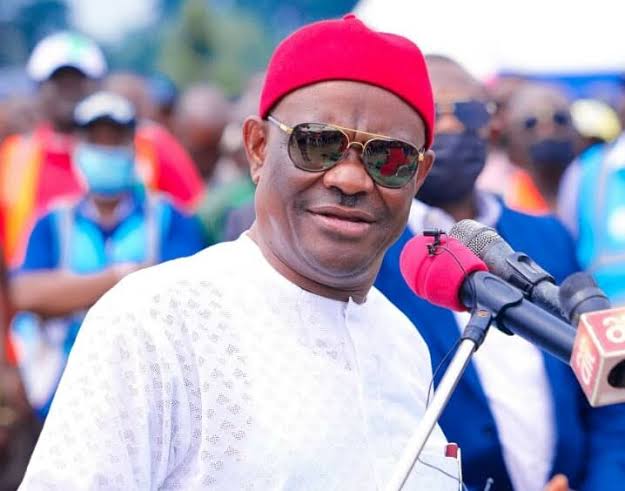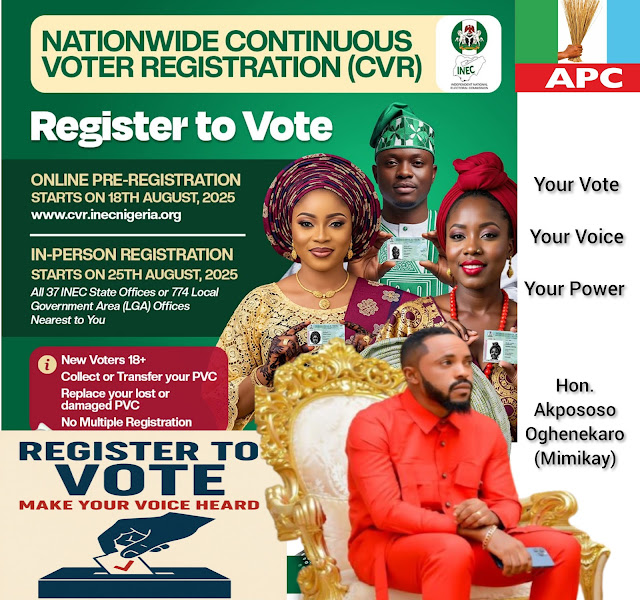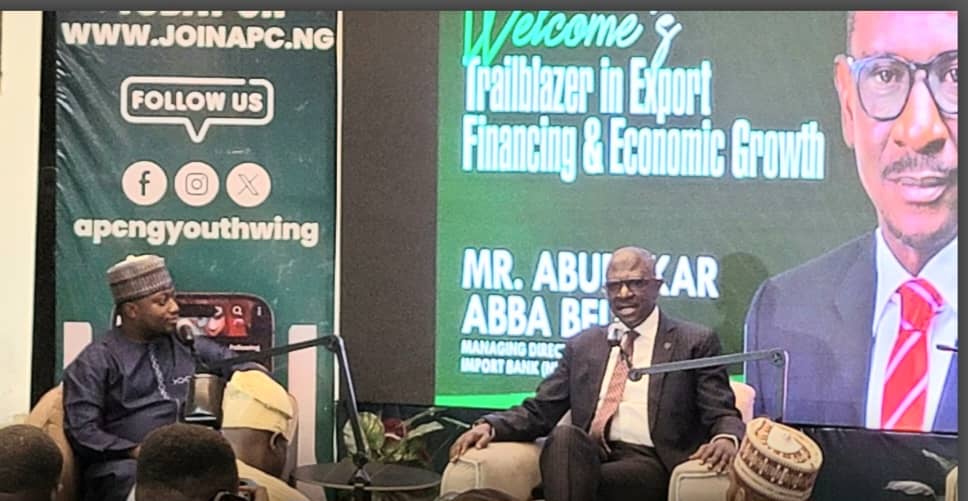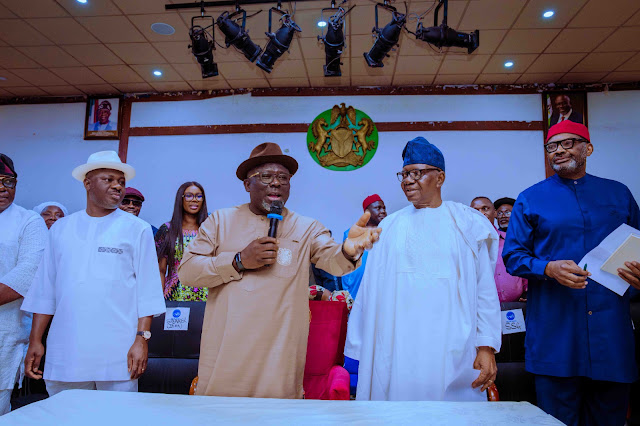The Peoples Democratic Party (PDP), one of Nigeria’s foremost political parties, is at a critical juncture as it prepares for its national convention scheduled for November 15 and 16, 2025, in Ibadan, Oyo State. The convention, intended to elect new national leadership and shape the party’s strategy for the 2027 general elections, has been thrust into uncertainty due to escalating internal crises. At the heart of this turmoil is a powerful faction led by Nyesom Wike, the Minister of the Federal Capital Territory (FCT) and former Governor of Rivers State. Wike’s camp, comprising influential party stakeholders, has issued a set of stringent conditions to the PDP leadership, threatening to derail the convention if their demands are not met. This article delves into the details of these conditions, the context of the crisis, the key players involved, and the broader implications for the PDP’s unity and political relevance in Nigeria.
Background: A Party in Crisis
The PDP, once the dominant political force in Nigeria, has faced significant challenges since losing the presidency in 2015 to the All Progressives Congress (APC). Internal divisions, leadership disputes, and factionalism have plagued the party, contributing to its electoral losses in 2015 and 2019, and its failure to reclaim power in 2023. The 2023 general elections further exposed the party’s vulnerabilities, as Wike and his allies, known as the G-5 governors, openly opposed the PDP’s presidential candidate, Atiku Abubakar, and supported rival parties, including the APC. This act of anti-party activity, though not formally sanctioned at the time, deepened rifts within the PDP and set the stage for the current standoff.
As the party gears up for its 2025 national convention, these unresolved tensions have resurfaced, threatening to undermine its efforts to reorganize and present a united front. The choice of Ibadan as the convention venue has been particularly contentious, given Wike’s strained relationship with Oyo State Governor Seyi Makinde, a former ally who now aligns with the PDP’s national leadership. Wike’s camp views the selection of Ibadan as a strategic move to bolster Makinde’s influence, prompting their aggressive push to assert control over the party’s direction.
Wike’s Camp and the Abuja Meeting
On Monday night, September 1, 2025, Wike convened a critical meeting at his residence in Abuja, attended by key PDP figures loyal to his faction. The group, described as “Eminent Leaders and Concerned Stakeholders,” included prominent party members such as PDP National Secretary Samuel Anyanwu, National Vice Chairman (South-South) Dan Orbih, former Benue State Governor Samuel Ortom, former Abia State Governor Okezie Ikpeazu, former Ekiti State Governor Ayo Fayose, former Enugu State Governor Ifeanyi Ugwuanyi, House of Representatives Minority Leader Kingsley Chinda, and the Speaker of the Rivers State House of Assembly, Martins Amaewhule. Other attendees included serving and former National Assembly members, as well as PDP state chairmen from Abia, Benue, FCT, Cross River, Akwa Ibom, and Rivers States.
The meeting culminated in a communiqué that outlined the group’s demands and reaffirmed their commitment to the principles of “equity, inclusivity, and internal democracy” within the PDP. The communiqué, read by Samuel Ortom, emphasized that failure to meet these demands could render the Ibadan convention invalid, as it would disenfranchise legitimate party members and violate court rulings. The conditions issued by Wike’s camp are specific, non-negotiable, and aimed at addressing perceived injustices in the party’s internal processes.
The Conditions: A Roadmap for Reform or a Power Play?
Wike’s faction presented five key demands to the PDP’s National Working Committee (NWC) and leadership, which they argue are essential to ensuring a fair and credible convention. These demands are rooted in disputes over party congresses, zoning arrangements, and adherence to judicial pronouncements. Below is a detailed breakdown of each condition:
Conduct of Fresh Congresses in Ebonyi and Anambra States
The group insists that the PDP must urgently conduct fresh, transparent, and inclusive congresses in Ebonyi and Anambra States. These states, located in the South-East geopolitical zone, have been flashpoints for internal disputes over party leadership and delegate selection. Wike’s camp argues that the previous congresses in these states were marred by irregularities, including exclusion of legitimate members and manipulation by certain factions. They demand that these congresses comply with court judgments that have invalidated earlier processes, emphasizing the need for transparency to restore trust among party members.
Fresh South-East Zonal Congress
In addition to state-level congresses, Wike’s faction calls for a fresh South-East Zonal Congress to elect new zonal leadership. The South-East has been a contentious region for the PDP, with competing factions vying for control. The group argues that the current zonal leadership does not reflect the will of the broader membership and that a new congress is necessary to ensure equitable representation. This demand is seen as a direct challenge to factions aligned with Atiku Abubakar, who maintains significant influence in the South-East.
Recognition of the South-South Congress in Calabar
Wike’s camp demands that the PDP recognize the outcome of the South-South Zonal Congress held in Calabar, Cross River State, on February 22, 2025. This congress, which elected Dan Orbih as National Vice Chairman (South-South), has been a point of contention, as the PDP’s national leadership has refused to acknowledge its legitimacy. Wike’s faction insists that the Calabar congress was conducted in accordance with party rules and is backed by a court ruling, making its recognition non-negotiable. This demand underscores Wike’s personal stake in the matter, as Orbih is a key ally whose position strengthens Wike’s influence in the South-South.
Immediate Conduct of Ekiti State Local Government Congress
The group calls for the immediate conduct of a Local Government Areas Congress in Ekiti State, in compliance with a subsisting court judgment. The Ekiti PDP has been embroiled in legal battles over its leadership structure, with Wike’s ally, former Governor Ayo Fayose, playing a central role. The faction argues that the failure to hold this congress has disenfranchised legitimate party members and risks undermining the state’s representation at the national convention. By emphasizing judicial compliance, Wike’s camp positions itself as a defender of the rule of law within the party.
Retention of the National Chairman Position in the North-Central
Perhaps the most significant demand is the insistence that the position of PDP National Chairman remain in the North-Central geopolitical zone, as per the zoning formula adopted at the 2021 national convention. Wike’s faction strongly opposes any attempt at “micro-zoning,” which they argue would destabilize the party and undermine its commitment to regional equity. The current acting National Chairman, Umar Damagum, hails from the North-East, and his leadership has been a source of contention, with some factions pushing for his replacement by a North-Central candidate. Wike’s camp views this demand as critical to maintaining the party’s balance of power and preventing further marginalization of the North-Central zone.
The communiqué concludes with a stern warning: failure to comply with these demands will render the Ibadan convention invalid, as it would exclude legitimate members and disregard judicial pronouncements. The group positions itself as a defender of the PDP’s founding principles of “equity, justice, inclusivity, and the rule of law,” while signaling its readiness to take decisive action if its conditions are not met.
Wike’s Broader Strategy: Control or Chaos?
Nyesom Wike’s role in the PDP has been both influential and polarizing. As a former governor and current FCT Minister, he wields significant political clout, particularly in the South-South and South-East regions. His leadership of the G-5 governors during the 2023 elections demonstrated his ability to mobilize support and challenge the party’s establishment. However, his open support for the APC’s Bola Tinubu in the presidential election has led to accusations of disloyalty, with critics like Senator Ibrahim Tsauri suggesting that Wike’s actions align more with the APC than the PDP.
Wike’s current demands can be interpreted in two ways: as a genuine push for reform to strengthen the PDP’s internal democracy or as a calculated power play to consolidate his influence ahead of the 2027 elections. His insistence on zoning the presidency to the South, as articulated by his spokesperson Lere Olayinka, reflects his belief that the PDP missed a strategic opportunity in 2023 by fielding a northern candidate (Atiku) when the APC’s Muhammadu Buhari, also a northerner, was completing his tenure. Wike argues that a southern presidential candidate in 2027 is essential for the PDP to regain national relevance, particularly given that the APC’s Tinubu, a southerner, will be seeking re-election.
However, Wike’s critics, including Oyo State PDP Chairman Hon. Dayo Ogungbenro and elder statesman Chief Olabode George, dismiss his threats as overblown. Ogungbenro described Wike’s claim that the convention might not hold as “the fallacy of the year,” noting that the PDP’s National Executive Committee (NEC) had unanimously approved Ibadan as the venue. George, speaking through his media aide, suggested that Wike should seek legal recourse if he disagrees with the party’s plans, emphasizing that the convention is an internal matter that does not require Wike’s approval.
The Role of Other Stakeholders
The PDP’s internal crisis is not solely about Wike’s faction. Other key players, including the PDP Governors’ Forum and the party’s national leadership, are actively shaping the narrative. The Governors’ Forum, led by Bauchi State Governor Bala Mohammed, has reaffirmed its commitment to holding the convention as planned, rejecting Wike’s threats. Governors like Seyi Makinde, Ahmadu Fintiri (Adamawa), Caleb Mutfwang (Plateau), and Agbu Kefas (Taraba) reportedly support acting National Chairman Umar Damagum, while Mohammed, Rivers State Governor Sim Fubara, and Osun State Governor Ademola Adeleke oppose his continued leadership.
The choice of Ibadan as the convention venue has deepened the rift between Wike and Makinde, who were once allies in the G-5 movement. Makinde’s alignment with the PDP’s national leadership and his role as host governor for the convention have positioned him as a counterweight to Wike’s influence. The PDP’s decision to zone the 2027 presidential ticket to the South, announced in August 2025, was seen as a partial concession to Wike’s demands, but his camp dismissed it as “too late” to make a meaningful impact, given the APC’s southern incumbent.
Implications for the PDP’s Future
The PDP’s ability to navigate this crisis will determine its viability as Nigeria’s leading opposition party. The conditions set by Wike’s camp highlight deeper issues of trust, inclusivity, and adherence to democratic principles within the party. If the leadership fails to address these demands, the convention could be disrupted, further eroding the PDP’s credibility and cohesion. Conversely, conceding to Wike’s faction risks alienating other stakeholders, including Atiku’s supporters and the governors aligned with the current leadership.
The broader political context adds another layer of complexity. With the APC firmly in control of the federal government and Tinubu likely to seek re-election in 2027, the PDP must present a united front to mount a credible challenge. Wike’s flirtation with the APC, coupled with his influence over key PDP figures, raises questions about his long-term intentions. Some speculate that he may be positioning himself for a strategic exit from the PDP or seeking to reshape it in his image to bolster his bargaining power in national politics.
Conclusion
The PDP’s national convention in Ibadan represents a pivotal moment for the party, but it is overshadowed by the demands of Wike’s faction. Their conditions—ranging from fresh congresses in Ebonyi and Anambra to the retention of the National Chairman position in the North-Central—reflect a broader struggle for control and relevance within the PDP. While Wike’s camp frames its demands as a defense of equity and justice, critics view them as a bid to dominate the party’s structures. As the November 2025 convention approaches, the PDP leadership faces the daunting task of reconciling these competing interests to avoid a catastrophic implosion. The outcome will not only shape the party’s internal dynamics but also determine its ability to challenge the APC in 2027 and reclaim its status as a formidable force in Nigerian politics.





